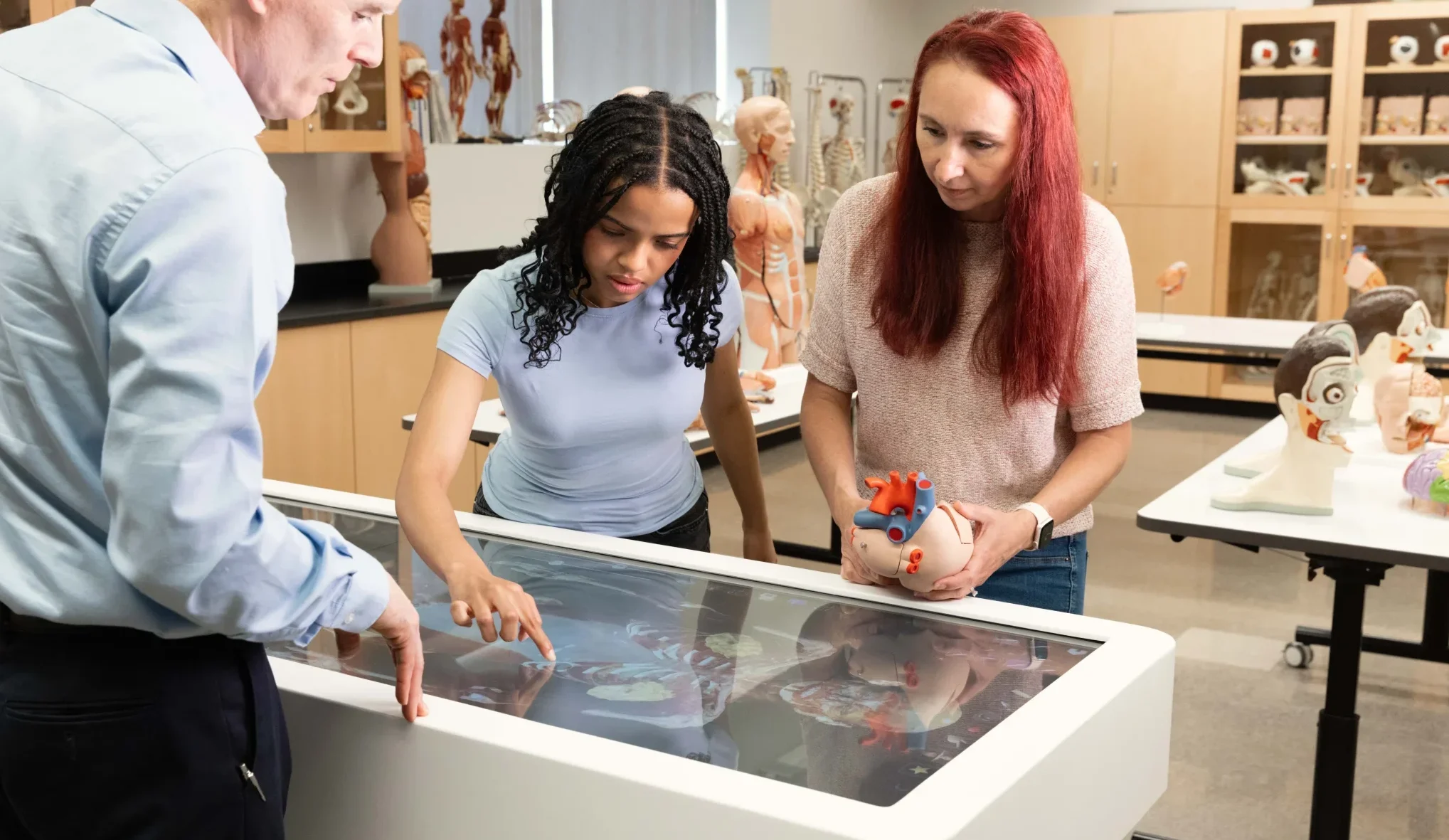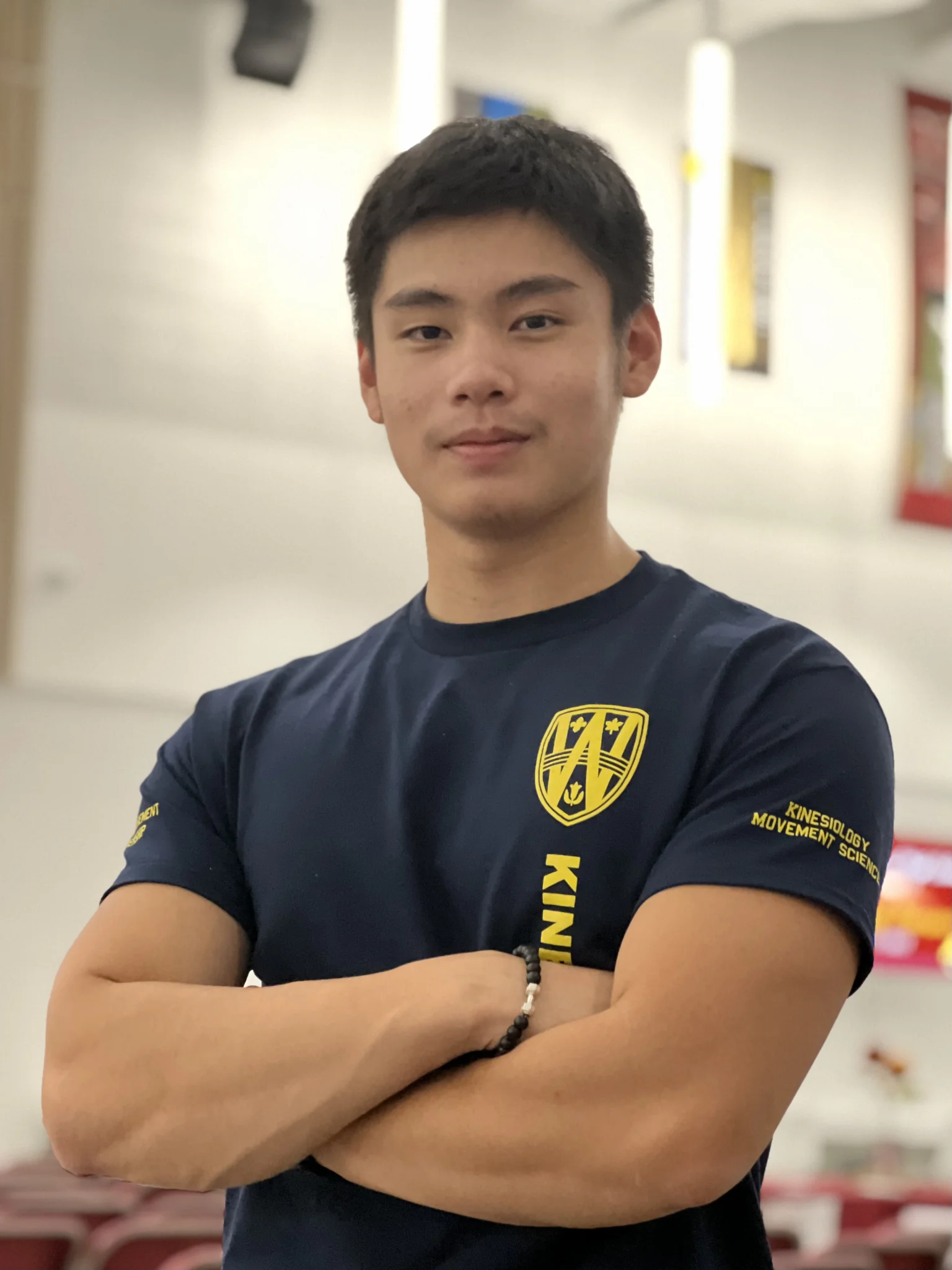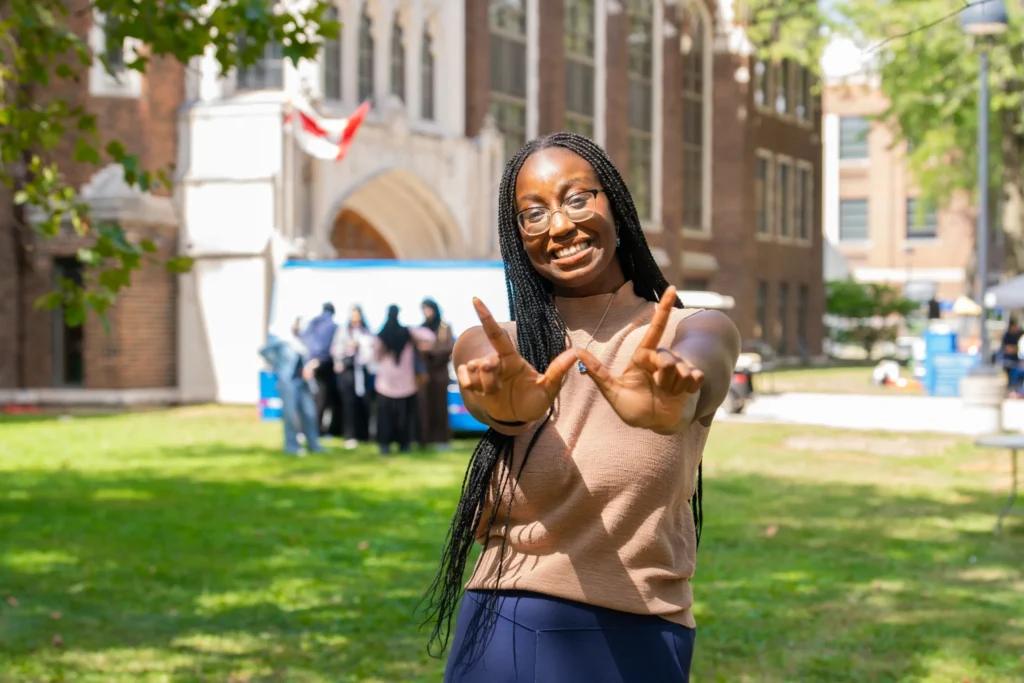Kinesiology & Health Studies

Program Overview & Highlights
- Co-op Opportunity
- Honours 4-Year Program
- Thesis Available
- Internship Available
- Study Abroad Available
Our students are leaders with strong critical thinking skills. Our grads go on to become registered kinesiologists, physicians, physiotherapists, teachers, researchers/consultants, fitness trainers and facility owners, marketing managers, coaches, and general managers of pro sports teams, just to name a few. Our grads are in demand —98% are employed in the first six months after graduation.
Focusing on the “human” in movement science and active living will provide you with all of the tools to become a leader in health and a variety of other industry sectors. You’ll like the family feel of this faculty, and there are lots of opportunities for hands-on learning through co-op, internships, community outreach, and conducting research with our leading scientists in state-of-the-art labs. Our program helps you position yourself for a career in a variety of industries, including healthcare, sport and recreation, manufacturing and more.
DEGREE COMPLETIONS:
- St. Clair College Fitness and Health Promotion diploma
- Fanshawe’s Fitness and Health Promotion diploma
- Fanshawe’s Recreation and Leisure Services diploma
Learn More About Our Program
What Lancers Are Saying

Benjie Roberto
Human Kinetics, Kinesiology and Health Studies StudentAdmission Requirements
High School Student from Canada
Course Requirements:
- English/ENG4U
- One of Biology/SBI4U, Chemistry/SCH4U, or Physics/SPH4U
- Starting Fall 2026: one of MHF4U or MCV4U
Minimum Average:
- 70% in English/ENG4U
- 70% in one of Biology/SBI4U, Chemistry/SCH4U, or Physics/SPH4U
- Starting Fall 2026: MHF4U or MCV4U – credit earned/no minimum average
Mean Average: 85%
Note: Co-op available; apply during Year 1
High School Student from Outside Canada and the United States (International)
Course Requirements:
- One of Biology/SBI4U, Chemistry/SCH4U, or Physics/SPH4U
- English/ENG4U
- Starting Fall 2026: one of MHF4U or MCV4U
Minimum Average:
- 70% in English/ENG4U
- 70% in one of Biology/SBI4U, Chemistry/SCH4U, or Physics/SPH4U
- Starting Fall 2026: MHF4U or MCV4U – credit earned/no minimum average
Mean Average: 85%
Note: Co-op available; apply during Year 1
Language Requirements
To review the most up-to-date information on Language Requirements: See language requirements.
Course Sequencing
Year 1 Required
Courses
This introductory course examines health and wellness from both a local and global perspective. An emphasis is placed on physical activity, nutrition, psychosocial wellness and stress, and disease prevention behaviours.
This course surveys the psychological principles underlying cognitive techniques that can be used to improve performance and enjoyment in physical activity environments such as sport and exercise. Among the topics to be explored will be goal setting, anxiety control, and attentional focus.
An in-depth study of the human musculoskeletal system. Emphasis will be placed on the components of skeletal, muscular, and nervous systems. Joint articulations will be covered in detail. (3 lecture hours per week; 1 lab hour per week; weekly test.)
Presents the quantitative fundamentals of mechanics as they apply to movements of the human body and the sport implements it handles.
An in-depth study of the structure and function of the human cardiovascular, lymphatic, endocrine, respiratory, digestive, urinary, and reproductive systems, as well as the somatic and special senses. (3 lecture hours per week; 1 lab hour per week; weekly test.)
A philosophical analysis of sport and physical activity with emphasis on ethical aspects. Ethical theories will be studied as a basis for assessing and understanding decisions and actions of coaches, athletes, officials, and executive members. Case studies covering problem areas will be utilized to enable the student to analyze these decisions and actions.
An examination of the role perception and cognition play in our ability to sense, attend to, process, and transmit information during the performance of any motor skill. The course will focus on an information processing approach to examine the processes that underlie our ability to perform motor skills.
Important Note: Course sequencing is for illustrative purposes only. The University of Windsor Academic Calendar is your source for official information about academic programs and regulations of the University of Windsor.
Academic Calendars
Career Tracks
- Professional school (medicine, pharmacy, dentistry, chiropractics, physiotherapy)
- Registered Kinesiologist
- Ergonomist
- Sport Psychology Consultant
- Human Factors Specialist
- Occupational Therapist
- Education
